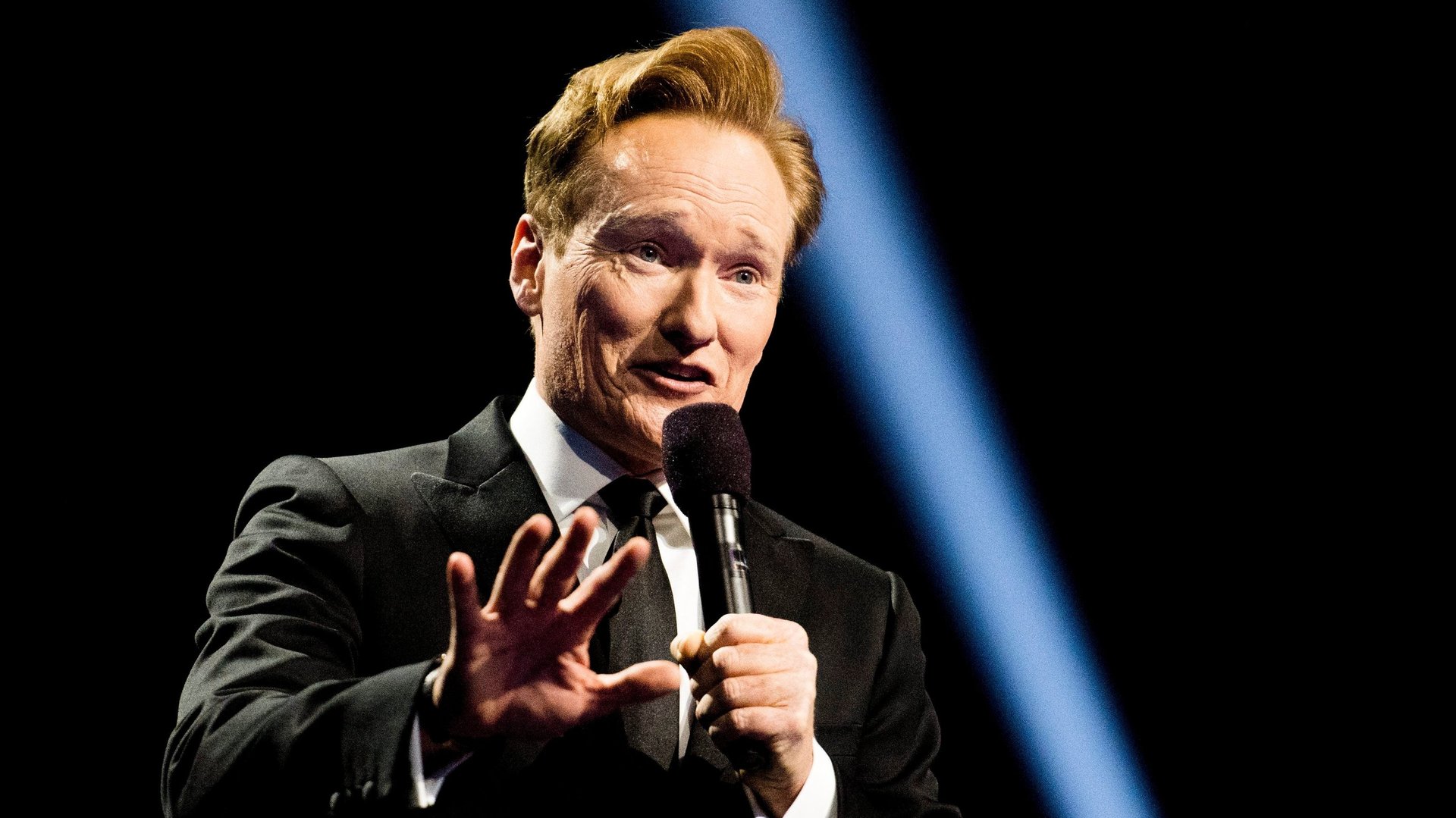Conan O’Brien’s move to HBO Max heralds the future of late-night comedy
After nearly three decades hosting late-night talk shows, Conan O’Brien is headed to streaming. The comedian will wrap up his self-titled nightly TBS show next year, and then move to HBO Max, where he’ll host a weekly variety series.


After nearly three decades hosting late-night talk shows, Conan O’Brien is headed to streaming. The comedian will wrap up his self-titled nightly TBS show next year, and then move to HBO Max, where he’ll host a weekly variety series.
The move highlights the waning relevance of nightly TV comedy in an increasingly on-demand world. It’s also a prime example of legacy media companies divesting from traditional TV and pouring resources into burgeoning streaming operations (WarnerMedia, a division of AT&T, owns both TBS and HBO Max.)
Originally a writer for Saturday Night Live and The Simpsons, O’Brien took over as host of NBC’s Late Night from David Letterman in 1993. He stayed there until 2009, when NBC briefly gave O’Brien the reigns to The Tonight Show after Jay Leno debuted a new primetime talk show. A few months later, in a now infamous fiasco, NBC decided to put Leno back in The Tonight Show time slot and bump Conan to later in the evening. Believing that would destroy his show, Conan left NBC in 2010 and launched a late-night series on TBS, where he’s been since.
“In 1993 Johnny Carson gave me the best advice of my career: ‘As soon as possible, get to a streaming platform,'” O’Brien said in a statement. “I’m thrilled that I get to continue doing whatever the hell it is I do on HBO Max, and I look forward to a free subscription.”
That Conan’s TBS show is winding down isn’t a shock: Last year, it went from an hour to 30 minutes long, and from two guests to one, amid middling ratings on the cable channel. Less topical and more creative than his competitors, Conan always felt slightly out of place on late-night television, a medium that’s stayed relatively consistent since Jack Paar and Johnny Carson popularized it in the 1950s and 1960s.
In an age of streaming and cord-cutting, late-night TV ratings have been steadily declining for several years. The genre has struggled to connect with millennial and Gen Z audiences while competing with Netflix and social media for eyeballs. Many viewers now watch shows like HBO’s Last Week Tonight with John Oliver online the day after it airs, or in bite-sized chunks, like James Corden’s “Carpool Karaoke” segment, which Apple has since spun off into its own show.
Conan’s move to streaming could signal a near future in which all the longtime fixtures of live, late-night TV—including Jimmy Fallon and Stephen Colbert—set up shop on the internet.
Late-night style streaming shows isn’t a novel concept, but it’s still in need of a lot of work. Netflix’s various attempts have largely failed. The company has canceled shows from comedians like Chelsea Handler, Joel McHale, and Michelle Wolf, finding it difficult to be timely or topical when viewers are not watching in a timely manner. Part of what made late-night TV popular in the first place was that it was appointment viewing—always on at the same time every night. Neither Netflix nor any other streaming platform has figured out a way to replicate that experience on the internet, which does not operate on a schedule.
HBO Max has dipped its toe in the late-night waters, if you consider The Not-Too-Late Show with Elmo to be in the same category as Conan or Colbert. (To the muppet’s credit, his show has received positive reviews. NBC’s nascent streaming service, Peacock, has also recently debuted two talk shows: Wilmore, a politics-centric show hosted by Larry Wilmore in the vein of HBO’s Real Time with Bill Maher, and The Amber Ruffin Show, a comedy series comprised of monologues and in-studio sketches, hosted by Ruffin, a Late Night with Seth Meyers writer.
But timeliness is always going to be an issue for late-night comedy on streaming platforms. It may take someone like Conan—along with his brand of absurdist humor and penchant for experimentation—to shake up the format and determine its streaming potential. That is, if there is any. It could be that some formats simply can’t make the leap from TV to streaming, and shall remain relics of a bygone era of entertainment.